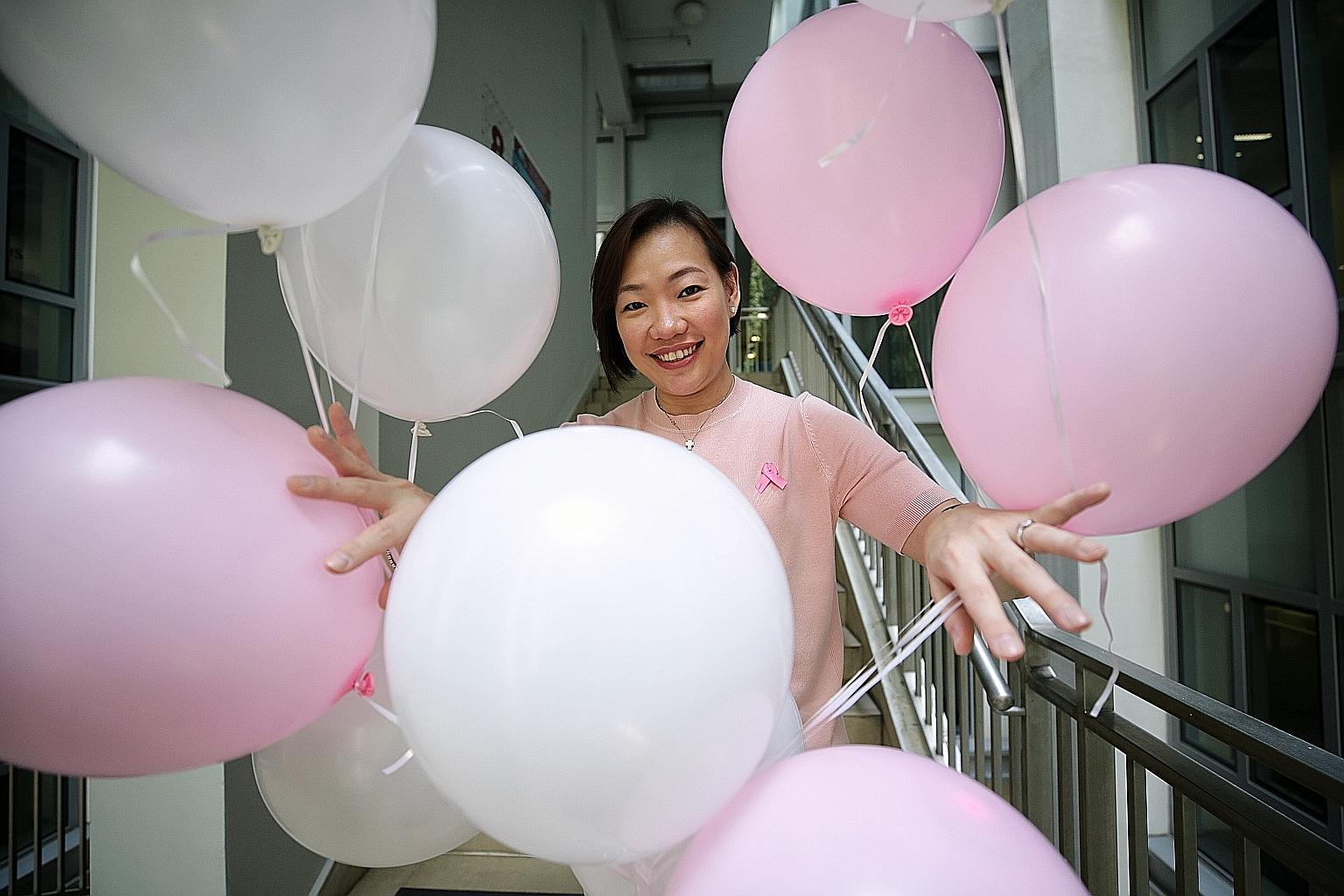More women going for first breast cancer screening
But only 1 in 5 go for their second check-up two years later, says Health Promotion Board
Sign up now: Get ST's newsletters delivered to your inbox

Ms Esther Toh, 45, who goes for regular mammograms, was diagnosed with stage 2 breast cancer in 2016. She opted to remove her left breast and underwent chemotherapy.
ST PHOTO: KEVIN LIM
Felicia Choo
Follow topic:
More women over the age of 50 in Singapore are going for their first breast cancer screening, but most still do not get their second check-up done two years later.
From 2014 to 2016, the number of women who went for their first mammogram rose by around 1,000 each year - from 6,550 in 2014 to 8,598 in 2016, according to the latest statistics from the Health Promotion Board.
But from 2016 to last year, more than four-fifths of them did not go for a second mammogram, despite this age group being at risk of breast cancer.
The rates for women getting a second mammogram were 13.6 per cent in 2016, and around 18 per cent in 2017 and last year.
These numbers are a cause for worry as breast cancer remains the most common cancer among Singaporean women, with one in 14 suffering from the condition before the age of 75.
Breast cancer is also the most lethal cancer among women, accounting for 2,105 deaths (17.3 per cent of cancer deaths) from 2011 to 2015, according to the Singapore Cancer Registry Annual Registry Report 2015. Last year, 991 women died of the condition.
Dr Chan Ching Wan, a senior consultant in the Division of Surgical Oncology at the National University Cancer Institute, Singapore (NCIS), said: "Regular breast screening, in particular, is important because it allows for early detection of most breast cancers, and we know that treatment of early-stage breast cancer has far better outcomes."
A mammogram costs $100 at polyclinics, and Singaporean women aged 50 and above can get a $50 subsidy under the Health Promotion Board's Screen for Life programme if they meet certain criteria, including not having gone for a mammogram in the past two years.
Only 30 per cent to 40 per cent of women aged 50 to 69 here go for mammograms, about half the rate of 60 per cent in other developed countries, said the College of Radiologists, Singapore.
Two major reasons for this are that women here feel healthy and do not see the need for a health screening, coupled with a lack of time.
There is usually no pain or any symptoms in the early stages of breast cancer.
Risk factors for breast cancer include being 40 and older, a family history of breast cancer, and early onset of menstruation and late menopause.
Dr Charlene Liew, chapter chairperson of diagnostic radiology at the College of Radiologists, Singapore, said: "Most people tend to defer screening for cancer, as compared with chronic diseases, because of the fear of the unknown - what will happen to them and their families if they are diagnosed with cancer, and a knowledge gap that many types of cancer tend to be present without any symptoms until the late stage."
For former flight stewardess Esther Toh, regular checks detected a lump near her left nipple and she was diagnosed with stage 2 breast cancer in 2016. She opted to do a mastectomy to remove her left breast, followed by 12 cycles of chemotherapy.
"After (the mastectomy), I gave myself a good cry and moved on," said Ms Toh, 45, whose mother died of stomach cancer at the age of 43.
"I think this awareness (of breast cancer screening) is very important for women, even at a young age."
Around 20 per cent and 10 per cent of breast cancer patients were diagnosed at stage 3 and 4 respectively, due to poor screening uptake, said Dr Samuel Ow, a consultant at NCIS' Department of Haematology-Oncology.
In these cases, the cancer was not picked up during a mammogram but through complaints to doctors about issues such as breast lumps or other breast abnormalities.
Dr Ow said a mammogram is by far the most reliable screening tool for breast cancer.
He advises women aged 40 to 49 to discuss with their doctor the option of going for a screening mammogram once a year, and those who fall outside of the screening guidelines should be reviewed by their doctor if they have risk factors.

